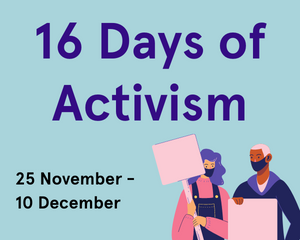Have a conversation with a male friend, family member or colleague about being a man and healthy masculinity.
Some ideas to get you started:
- Watch Tony Porter’s TED Talk A Call to Men together, and discuss what resonates with you.
- Discuss how the media portrays the ideal man as someone who is rewarded for fighting, and who wins a woman as the prize. Reflect on how this might affect the health and wellbeing of both men and women.
- Identify men who you think show a healthy masculinity. They might express emotions, be nurturing, be active fathers, take on non-traditional roles or tasks, have sex lives that are based on consent and mutual enjoyment. Discuss why you admire these men.
How does it help?
Men and boys regularly receive messages that to be a man or ‘manly’ they need to:
- be physically strong, tough or aggressive
- be dominant and in charge
- show no emotions, particularly fear, hurt or pain
- achieve sexual conquest over women.
Research shows that ‘levels of violence against women are significantly and consistently higher in societies, communities and relationships where there are more rigid distinctions between the roles of men and women’ (Our Watch, 2015: 25).
Research also shows that ‘men who hold traditional, hierarchical views about gender roles and relationships are more likely to perpetrate violence against women’ (Our Watch).
Promoting healthy, alternative and diverse masculinities is important for preventing men’s violence against women.
Keep going!
Keep the conversation going about healthy masculinity with the men in your life:
- Watch the film The Mask You Live In about harmful masculinity and gender stereotypes for men. Share this with male friends, family members or colleagues.
- Call out statements from men that support harmful, aggressive or controlling ideas about masculinity.
Please note that these clips/articles contain information regarding the topics of sexism, gender inequality and violence against women. If you find the information distressing, please click through for information and support on self care. If you or someone you know is experiencing violence, please visit the our help section for further information and support.
